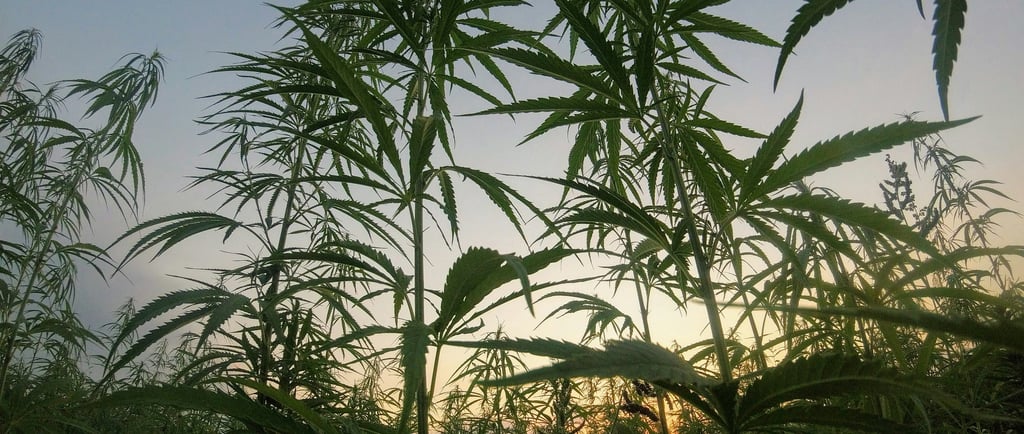
Harm Reduction and Responsible Use of Cannabis: A Comprehensive Guide
With cannabis legalization around the corner, this article discusses harm reduction and responsible use.
CANNABIS
CryptoTokin
3 min read


Introduction: As cannabis becomes more widely accepted and accessible, it's essential for users to understand the importance of harm reduction and responsible consumption. While cannabis offers numerous potential benefits, it also carries risks, especially when used irresponsibly or excessively. In this comprehensive guide, we will explore strategies for harm reduction and responsible use of cannabis, emphasizing the importance of education, moderation, and informed decision-making. Whether you're a beginner exploring cannabis for the first time or an experienced user seeking to enhance your consumption habits, this guide will provide valuable insights to help you navigate the world of cannabis safely and responsibly.
Understanding Cannabis: Before delving into harm reduction strategies, it's crucial to have a basic understanding of cannabis, including its psychoactive effects, potential benefits, and risks. Cannabis contains a variety of chemical compounds known as cannabinoids and terpenes, which interact with the body's endocannabinoid system to produce various effects. The primary psychoactive cannabinoid in cannabis is delta-9-tetrahydrocannabinol (THC), while cannabidiol (CBD) is non-psychoactive and may counteract some of the effects of THC.
Harm Reduction Strategies:
Start Low and Go Slow: When trying cannabis for the first time or experimenting with a new product or method of consumption, start with a low dose and gradually increase as needed. This approach helps minimize the risk of adverse reactions and allows you to gauge your tolerance levels.
Know Your Limits: Recognize your personal tolerance and limits when using cannabis. Avoid consuming more than you can handle, and be mindful of how cannabis affects your mind and body.
Avoid Mixing with Other Substances: Mixing cannabis with alcohol or other drugs can amplify the effects and increase the risk of adverse reactions. It's best to consume cannabis on its own and avoid combining it with other substances.
Use Quality Products: Choose cannabis products from reputable sources that adhere to strict quality control standards. Avoid products that may be contaminated with pesticides, heavy metals, or other harmful substances.
Practice Safe Consumption Methods: Whether you prefer smoking, vaping, edibles, or other methods of consumption, prioritize safety and hygiene. Use clean equipment, such as pipes or vaporizers, and avoid sharing with others to prevent the spread of germs and infections.
Be Mindful of Set and Setting: Your environment and mindset can significantly influence your cannabis experience. Choose a comfortable and familiar setting, and consider your emotional state before consuming cannabis. Avoid using cannabis in stressful or unfamiliar situations.
Responsible Use Practices:
Respect Local Laws and Regulations: Familiarize yourself with the laws and regulations governing cannabis use in your area, and adhere to them at all times. This includes age restrictions, possession limits, and consumption guidelines.
Educate Yourself: Stay informed about the latest research, trends, and developments in the cannabis industry. Take the time to learn about different strains, products, and consumption methods to make informed decisions about your cannabis use.
Monitor Your Consumption: Keep track of how much cannabis you consume and how often. Regularly assess your consumption habits and make adjustments as needed to maintain a healthy balance.
Listen to Your Body: Pay attention to how cannabis affects your mind and body, and listen to any signals or warnings they may be sending. If you experience negative side effects or discomfort, take a break from cannabis and reassess your usage patterns.
Seeking Support and Resources:
If you're struggling with cannabis use or have concerns about your consumption habits, don't hesitate to seek support from healthcare professionals, counselors, or support groups specializing in substance abuse and addiction.
Take advantage of online resources, educational materials, and community forums dedicated to cannabis education, harm reduction, and responsible use. These resources can provide valuable information, support, and guidance on navigating the world of cannabis safely and responsibly.
Conclusion: Harm reduction and responsible use are essential principles for anyone participating in the cannabis world. By following these strategies and guidelines, users can minimize the potential risks associated with cannabis use while maximizing its benefits. Remember to stay informed, exercise caution, and prioritize your health and well-being above all else. With the right knowledge and mindset, cannabis can be enjoyed responsibly and safely by individuals of all backgrounds and experience levels.
